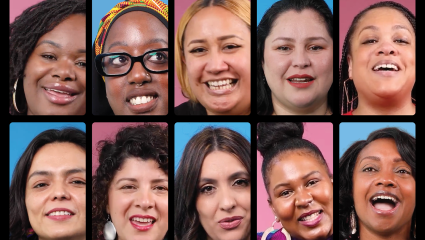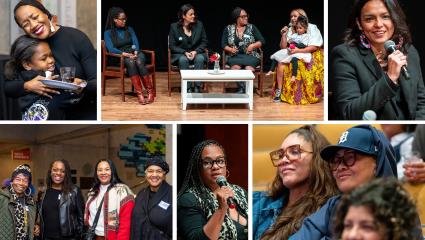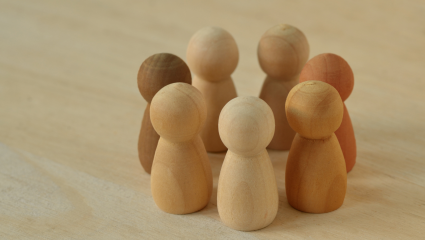

Credit: Facebook
Breonna Taylor, Ahmaud Arbery and George Floyd. Many of us know their names well. And if you don’t, please take the time to look them up, study the facts and hold them in your memory. Now think about what you would say to your children if they asked what happened to Breonna, Ahmaud and George. What would you say if they asked why?
For many, this is not something they have to imagine. For Black families, these difficult conversations are always happening. We have to explain to our children why the melanin in their skin could put them at risk for random violence, even from the people who are here to protect and serve.
My children are still young enough not to pay attention to the news or social media, so they are not witnessing the rage and despair overwhelming our communities and filling our social feeds. But my two older boys are growing fast. Anthony and Evan will turn 11 and 13 in a few months. The older they get the more I fear for their safety. The bigger and taller they become, the higher their chances that they could be targeted with senseless violence.

Evan, 13, Anthony, 11 and Denim, 4, Cobbins
I will have to educate them on what to do if they are ever stopped by the police or how to shop without being accused of stealing. But how do I explain that simply taking a neighborhood run or sitting in your home as a Black person can put them in harm’s way? How do I teach them about kindness and morality when our country can seem so brutal and unjust? How do I ensure they can continue to feel safe in their own home, or even in their own skin?
But this fear is not just for Black boys and men. I also have a young daughter, Denim. When she grows up, will she have that constant fear we have as Black women, each day knowing that violence can strike us, our family or friends at any time? Black women too are targets for police brutality and racist violence. How many funerals will she have to attend for those who were taken from us too soon? Will this stress cause weathering on her body and put her at risk for preterm birth?
I also think about my Black sisters who are pregnant during this time – when the joy of being with child can get overshadowed by the fear and anxiety of bringing a Black baby into this country, not to mention during a pandemic.
The news of Taylor, Arbery and Floyd is soul-crushing for many of us, and the rage and despair can feel all-consuming. Yet, we are resilient because our ancestors were, we are resilient because we have no choice and we are resilient because we have each other.
But how do we build and maintain this resilience? How do we cope?
Because we know all too well how racism-related stress impacts our health and birth outcomes, I want to offer some advice from diversity and inclusion specialist, Dante King, who is guiding our staff through a multi-year journey to steepen our understanding of structural, systemic and institutional white racism/privilege and anti-Blackness, a foundation which is central to our work to improve birth outcomes for Black and Brown families. King recommends the following tips for self care:
- Write a journal
- Establish or join mini-communities to discuss the issues
- Cry – yes, let it out!
- Talk to family
- Access available and effective therapy
I also want to share some additional self-care tips from Dr. Imani J. Walker, who contributed this article to The Root in 2016 – sadly after the police shooting deaths of Alton Sterling and Philando Castile. Here’s an abridged list of Walker’s tips:
- Take a break – If you have the option to take a mental health day from work, use it.
- Meditate – Meditation has been proven to decrease anxiety, decrease depression, and improve decision-making and memory.
- Exercise – Moderate to vigorous exercise has long been known to boost levels of serotonin, the “happy” chemical, in the brain.
- Unplug from social media – Post-traumatic stress disorder via social, online, print or TV media is very real…Be sure to take command of social media, and don't allow it to control you.
- Give to those in need or volunteer – This is a great way to pay it forward.
- Play with animals - If you can't do this, watch cute animal videos that will satisfy your pet craving and boost your serotonin levels.
- Get silly and dance - Dance to your favorite playlist like no one’s watching.
Walker also offers a great piece of advice that I’m taking to heart: “The temptation to check first on others who are just as frustrated as you is noble but can sometimes lead to not caring enough for yourself.”
I hope that these tips can provide at least some semblance of comfort and healing.
In solidarity,
Alexis Cobbins



